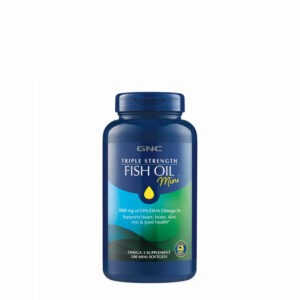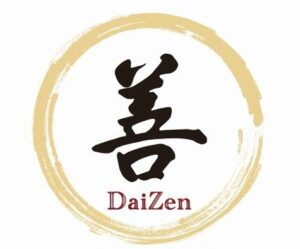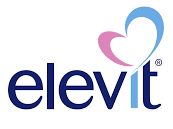
Hot weather is not just about heat stroke, but also cardiovascular risks
In July this year, Taiwan has been experiencing high temperatures, and the weather has repeatedly turned into a "baked sweet potato" in various parts of the country. In such a hot environment, in addition to preventing heat stroke, people with a history of high blood pressure or cardiovascular disease should be more vigilant. If you experience symptoms such as chest pressure, chest pain, palpitations, shortness of breath, nausea, cold sweats, dizziness or even fainting, don't think it's just the heat, as these are likely to be warning signs of heart disease.
Heart disease has long ranked second among the top 10 causes of death in China, with one person losing his or her life every 26 minutes on average. And the three highs (High blood pressureThe main risk factors for cardiovascular diseases are obesity, smoking, alcoholism, lack of exercise and unhealthy diet. In the past, it was commonly believed that heart attacks were more likely to be triggered when blood vessels constricted during cold weather, but in fact, high temperatures also carry hidden dangers.
Dr YEH Hong-yi, Honorary Director of the Lipid and Atherosclerosis Society of the Republic of China, pointed out that when the temperature rises, the body's blood vessels will naturally expand, coupled with easy sweating in the summer, the body's water evaporates quickly, and the blood becomes thicker, which may lead to coronary artery blockage, and then lead to a myocardial infarction. Dehydration can also cause a rapid heartbeat, increasing the risk of arrhythmia or heart failure.
Myocardial Infarction vs Heat Stroke, Symptoms Are Very Different
The symptoms of myocardial infarction and heat stroke are distinctly different, and the public should learn to distinguish them. Dr Yeh said that the typical symptoms of myocardial infarction include obvious chest tightness, chest pain, cold sweat and nausea, and sometimes menopausal women may experience atypical symptoms such as shortness of breath or back pain. Heat stroke or heat exhaustion, on the other hand, is a systemic heat injury, with common symptoms including dizziness, headache, weakness, muscle spasms, and in severe cases, even blurred consciousness. Generally speaking, heat stroke or heat exhaustion usually occurs after prolonged exposure to high temperatures and is therefore easier to determine from the medical history.
Dr Yip reminded that if symptoms of heart disease are suspected, it is important to leave the hot environment immediately, try to cool down the body, such as loosening clothing, wiping with water or fanning, and replenish cold boiled water or electrolyte drink containing a small amount of salt, and most importantly, consult a doctor as soon as possible to seize the golden time for treatment.
Five tips to protect your heart from the summer heat
Director of the National Health Service (NHS), Mr Wong Ying-wai, appealed thatprotection of the heartIt is not a slogan, but an action that should be implemented in daily life. In the face of the challenge of high temperatures, the public can take the following five steps to protect themselvesHeart Health:
1. Cooling down the heat and reducing the stimulation of temperature difference.
For outdoor activities or labourers, they should wear loose, breathable and light-coloured clothing, sun hats and sunglasses, and carry enough drinking water with them. If the weather is hot and humid, it is recommended to set the air-conditioning at 26 to 27 degrees Celsius. Before entering an air-conditioned room from the outdoors, you can put on a thin jacket to avoid aggravating the heart and blood vessels due to the big difference in temperature between the indoor and outdoor areas. If you are not using air-conditioning, you should keep the room well ventilated.
2. Healthy diet and adequate hydration
Diet should be light, with more vegetables, fruits, brown rice and whole grains, less greasy and high saturated fat foods, and steaming, boiling and scalding instead of deep-frying are recommended. Diets should not be too salty to avoid raising blood pressure. Consume at least 2,000ml of plain water a day and avoid sugary or alcoholic beverages. If you have heart disease, liver disease or need to restrict water, you should consult your doctor for advice. Eating more fruits and vegetables can also replenish water, fibre and a variety of nutrients, which are beneficial to overall health.
3. Regular exercise, choosing the right time and intensity
Exercise helps relieve stress and improve blood circulation. It is recommended to accumulate 150 minutes of moderate physical activity per week, such as brisk walking, slow walking or cycling. Exercise can also be incorporated into daily life, for example, standing activities can burn more calories than sedentary activities. Outdoor exercise should be done in the cooler hours of the morning or evening, avoiding the high temperatures between 10am and 2pm.
4. Quit smoking and drinking to stay away from cardiovascular killers
Both smoking and second-hand smoke significantly increase the risk of heart disease. According to the World Health Organisation, in 2016, about 3 million people died from alcohol-related causes, of which 191 TP4T were related to cardiovascular disease. It is recommended to avoid alcohol as much as possible, and if you need to socialise, you can make healthier choices by replacing alcohol with tea or water.
5. Regular health check-ups to control the three high values.
People can make more use of the free adult preventative healthcare services provided by the NHS, once every three years for those aged 40-64, and once a year for those aged 65 and over. People with high blood pressure, high blood sugar or high blood lipids should improve their lifestyles, monitor their blood pressure and blood sugar regularly, take their medication according to their doctor's instructions and return to the clinic for regular follow-ups, rather than adjusting the dosage of medication or stopping the medication on their own.
In conclusion, high temperature not only tests the body's ability to withstand heat, but can also be an invisible killer of cardiovascular diseases. The only way to protect your heart from the heat of summer is to be more vigilant and live a healthy lifestyle.
Related Post:
Related Products:
-
Sale!
 Out of stock
Out of stock
Webber Naturals – Triple Strength Omega-3 (900mg EPA / DHA) 200 capsules Value Pack
Original price was: $398.00.$280.00Current price is: $280.00. Add to basket -
Kirkland Signature – Omega-3 Concentrated Deep Sea Fish Oil Pills 1300mg 330 Capsules
Original price was: $350.00.$298.00Current price is: $298.00. Add to basket -
Sale!
 Out of stock
Out of stock
GNC – Triple Super Fish Oil Mini Capsules 240 Capsules
Original price was: $298.00.$245.00Current price is: $245.00. Read more -
Sale!
 Out of stock
Out of stock
Swisse – Ultiboost Odorless High Concentration Wild Fish Oil 1500mg 400 Capsules
Original price was: $298.00.$220.00Current price is: $220.00. Read more





































































